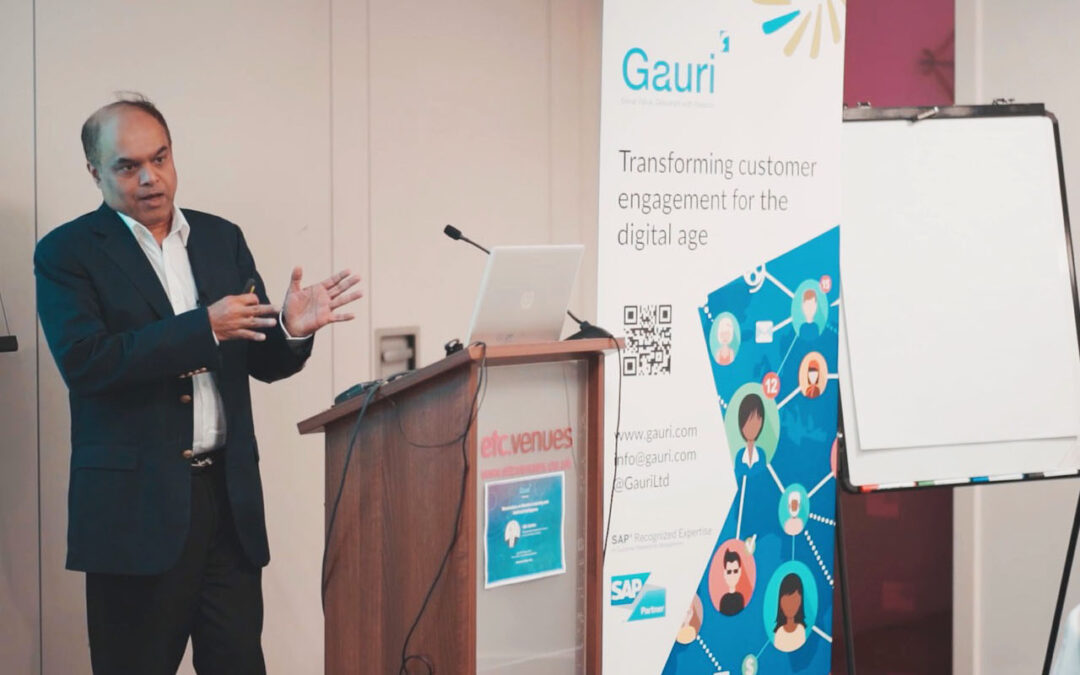This masterclass event was delivered by Ajit Jaokar on 26th Feb 2020. Ajit is a Principal Data Scientist/AI Designer at the University of Oxford, and a top-rated influencer in the World Economic Forum. We are pleased to present a brief profile of Mr. Jaokar and key takeaways from this masterclass.
ABOUT AJIT JAOKAR
Based in London, Ajit’s work spans research, entrepreneurship and academia relating to artificial intelligence (AI) and the internet of things (IoT). Ajit works as a Data Scientist through his company Feynlabs – focusing on building innovative early-stage AI prototypes for domains such as cybersecurity, robotics, and healthcare.
Ajit was listed in the top 30 influencers for IoT for 2017 along with Amazon, Bosch, Cisco, Forrester, and Gartner by the German insurance company Munich Re.
Ajit publishes extensively on KDnuggets and Data Science Central and his book, Data Science for the Internet of Things, is included as a course book at Stanford University. He was recently included in top 16 influencers (Data Science Central), Top 100 blogs (KDnuggets), Top 50 (IoT central), and 19th among the top 50 twitter IoT influencers (IoT Institute).
KEY TAKE-AWAYS
Masterclass opened with three questions:
- What is (and isn’t) AI
- Understanding Machine Learning, Deep Learning vs AI
- Future, AI for Customer Engagement
Broadly,
- Machine Learning is about ‘explicitly training an algorithm’
- Deep Learning is about ‘automatic feature detection’
- And Artificial Intelligence is about ‘machines that can think and reason, predominantly based on deep-learning algorithms’
AI, FROM HYPE TO REALITY
The convergence of algorithmic advances, data proliferation and tremendous increase in the computing power and storage has propelled AI from hype to reality.
From relatively transactional chat-bots to voice-recognition, to conversational AI, machine-learning, deep-learning and artificial intelligence-based customer engagement management systems are increasing their footprint across industries, with a specific focus on customer-service lead functions, traditionally served by humans as the 1st line of support.
AI-DRIVEN CRM ASPECTS
In the world of CRM, AI has a greater role to play, such as:
- Predictive lead scoring
- Forecasting
- Recommendations
- Natural language search
We throw some light on these aspects one by one starting with CRM and recommendation engines.
CHATBOTS replacing human agents at 1st line of interaction. The Charly Chatbot by SAP, Watson by IBM, Tay from Microsoft is experiments that have proved their potential in this space. IBM Watson is a clear leader in this category as Watson is powered by deep-learning and natural language predictive conversational capability.
Continuously customising user experiences through PREDICTIVE RECOMMENDATIONS using customer’s historical data. NATURAL LANGUAGE PROCESSING to automatically categorise inbound calls into sales or customer service.
Increasing deployment of VOICE RECOGNITION in online and instore. It is now being deployed in phone banking for improved security using customer’s voice signatures. Use of AI to improve productivity.
Comprehensive CUSTOMER PROFILING across customer touchpoints and social media. Determination of
buying trends from purchase history. Improve customer retention.
EMOTIONAL ANALYSIS OF CUSTOMER COMMUNICATIONS – detecting the sentiment or intent of a customer
enquiry. Combined with sentiment and intent analysis, increasing up-selling opportunities and overall forecasting.
OBJECT RECOGNITION to help consumers find products and also companies to improve product placement in a store.
FACIAL RECOGNITION to provide contextual marketing (i.e. change ads in a real-time)
Here are some examples of AI in Sales:
- Identification and response to the hottest leads first by using lead-scoring algorithms.
- More accurate forecasts and faster quotes – real-time pricing and discount history.
- Automated notification alerts for opportunities not progressing at a regular pace.
- Lead qualification based on conversion probability.
- Sales cycle automation from leads to closed deals.
- Minimise data entry by using pre-populated fields and advanced tasks and notification management.
Examples of AI in Marketing:
- Automatic identification of next steps at the point of first customer response to a marketing event.
- Direct marketing performance analysis by product and/or customer.
- Customers brand awareness and brand perception based on social media chatter.
- Campaign success prediction and refinement opportunities.
- Understanding emerging trends from a marketing campaign.
- Real-time response to leads coming from website or social media.
- Trigger email campaigns using machine learning algorithms and customer response history.
- Connect all your marketing data and KPIs automatically to manage campaigns, trigger alerts and improve your marketing efficiency.
Examples of AI in Service:
- Leverage CRM and Machine Learning to enhance the Customer Service processes:
- Determine the intent of the customer’s phone calls and the frequency they occur to improve
customer satisfaction - Automatically escalate requests from different types of customers
- Generate auto responses based on a question or issue type
- Classify and route necessary calls to live agents to when need saving costs and increasing efficiency
- Track and analyse customer satisfaction on social media platforms to get out ahead of potential issues and automatically assign tickets to agents
SYNOPSIS
Machine learning, deep learning is no longer a hype, it is already around us. With AI, the potential to improve customer engagement and opportunities to be at the forefront as a leading service provider are unlimited.
Modern CRM is breaking-away from its silos and developing as a core system for any business for customer engagement through the power of data using ML/DL and AI at its core.
At Gauri, as experts in digital CRM, and we can help you shape your strategy and co-create the opportunities for improved customer engagement. We also assist our clients to achieve seamless integration with your other core systems such as ERP, truly achieving Single Customer View or Customer 360.

